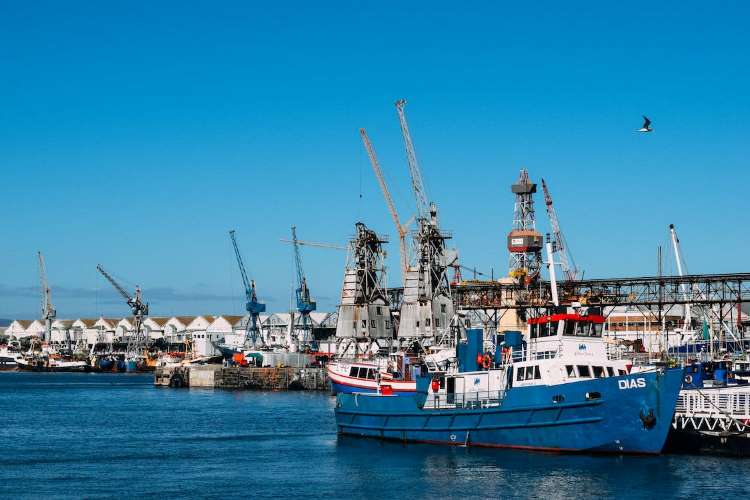Need for WTO reforms: As the G20 host, India has a greater say in global issues, and the country has decided to use this opportunity to propose 34 operational changes to the World Trade Organisation (WTO). These suggestions include a year-long cooling-off period before hiring a diplomat in any role in the organisation, resolving old issues before picking up new ones, and a time-bound work programme to make dispute settlement more accessible for developing countries.
In its proposal, India suggests that developing nations should not be mere bystanders while other members formulate policies. Developing nations must be given a 24-month time frame to reform the Trade Policy Review Mechanism, so they can join deliberations and implement trade policies better. Furthermore, there must be an elimination of conflict of interest in the appointment to the chair and staff positions of the committees.
READ | Regulatory biases weigh on telecom sector growth
India has grouped the suggestions into five categories, including WTO regular meetings, rules and procedures, and committee-specific recommendations. The country suggests that time frames for the implementation of recommendations can improve the WTO’s operations. Moreover, India asks the organisation to consider aligning its accounting and audit practices to the UN system in terms of auditor selections, procedures, and reporting. It has also suggested a process to review the structure of all regular reports such as trade forecasts, and a member-driven process for the identification of studies carried out by the WTO with international organisations.
Evolution of world trade. 1950- 2022
Historically, developing countries have had little influence over the WTO’s decision-making processes. There has been a growing demand from developing nations for better representation in WTO decision-making bodies to ensure that their interests are protected.
Need for WTO reforms
The WTO is the apex global trade body that facilitates smoother trade ties between member nations. Of late, the organisation has been criticised for a lack of equity, transparency, and effectiveness. Developing nations, including India, 44 African countries, Cuba, and Pakistan, have suggested that the WTO needs to fix historical imbalances embedded during the organisation’s founding in 1995. A note regarding the same was submitted to the WTO during its June 2022 ministerial. India is getting a larger say in global issues as its economy continues to expand. Earlier, the country had also been demanding equality and transparency at the WTO.
The WTO has been losing its pre-eminent position in the wake of the emergence of regional blocs and bilateral partnerships in the last two decades. This trend threatens the relevance of the WTO and has created concerns about the future of the multilateral trading system. Numerous countries have pursued bilateral trade partnerships to secure their national economic interests, rather than engaging with the WTO’s multilateral framework. Regional trade agreements, such as the European Union (EU), the Comprehensive and Progressive Agreement for Trans-Pacific Partnership (CPTPP), and the African Continental Free Trade Area (AfCFTA), have also grown in recent years. These trade partnerships mean that participating countries are choosing not to be under the WTO’s purview.
As the G20 host, India is expected to raise concerns about rising protectionist policies in both developed and developing nations and build consensus towards agreements and ensure results, as the WTO Director-General, Ngozi Okonjo-Iweala, had said on the sidelines of the recent G20 foreign ministers’ meeting.
G20 international trade, quarterly growth rates
The WTO is set to complete three decades on January 1, 2025, and the organisation has acknowledged the need for restructuring to promote resilient, sustainable, and inclusive trade. The WTO has also called on member countries to accelerate the pace of work on reform that matches the size of the challenges facing the global trading system. According to the organisation, having a fully functioning dispute settlement system is a top priority as the WTO has a unique role in ensuring that rules are applied consistently across members irrespective of their size.
The dispute settlement system is one of the most important functions of the WTO. However, the system has been facing criticism for its slow and bureaucratic processes. Members have long called for the adoption of faster and more streamlined procedures for resolving disputes.
The WTO is also expected to encourage cooperation between its member countries to address a range of issues, including climate change, income inequality, and the aftershocks of the Russia-Ukraine war. In the meantime, the organisation has set its sights on attracting the investment needed to develop digital infrastructure, close digital divides, improve digital skills and entrepreneurship, and reap the full benefits of digital trade.
Reforming the WTO is a Herculean task and cannot be achieved until nations walk the talk on addressing concerns of smaller nations over issues like cultural subsidies and intellectual property. It is also India’s moment to leverage its position as the G20 host to push the global action agenda for WTO reforms and represent the interests of the Global South in global governance structures.

